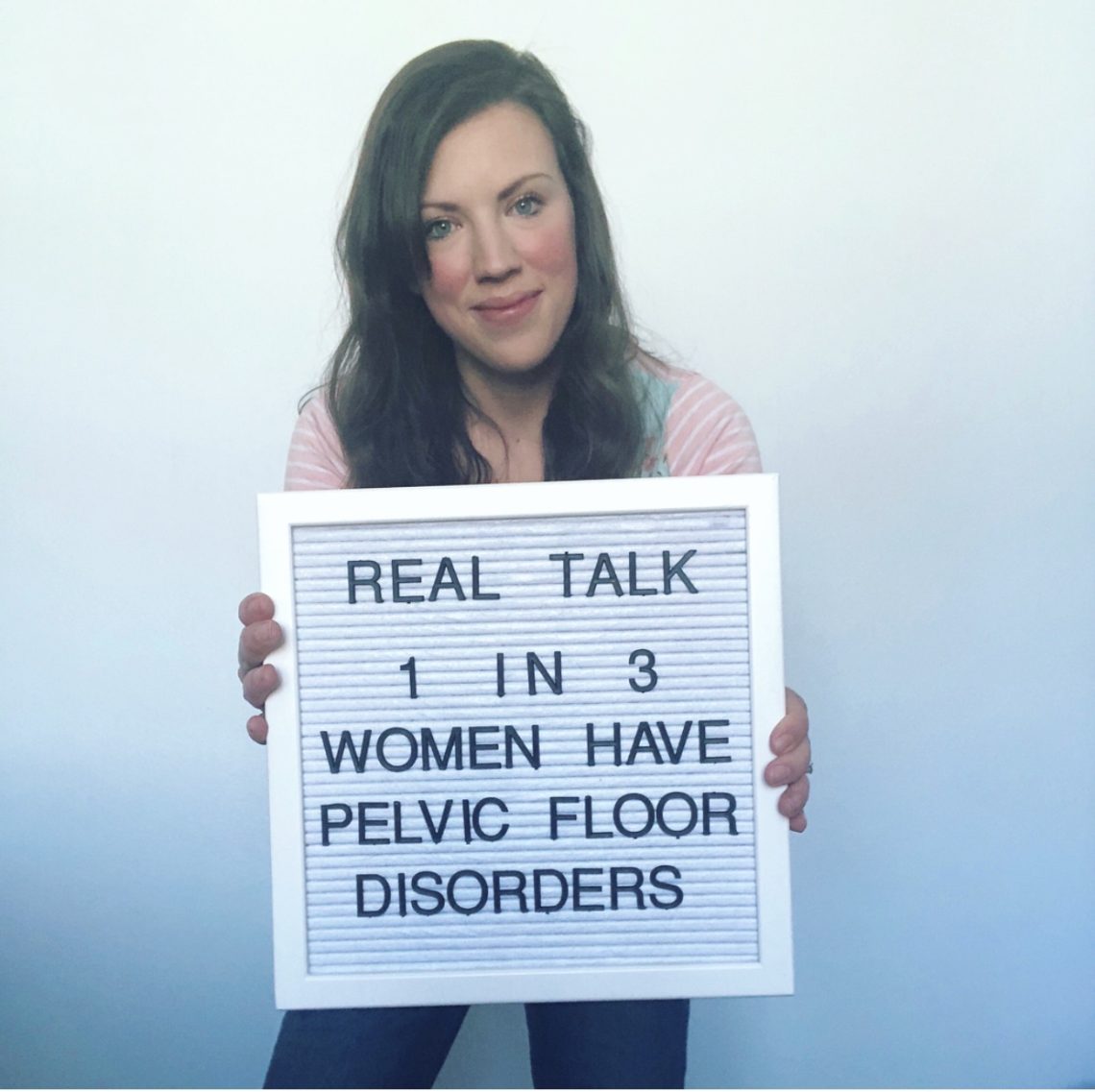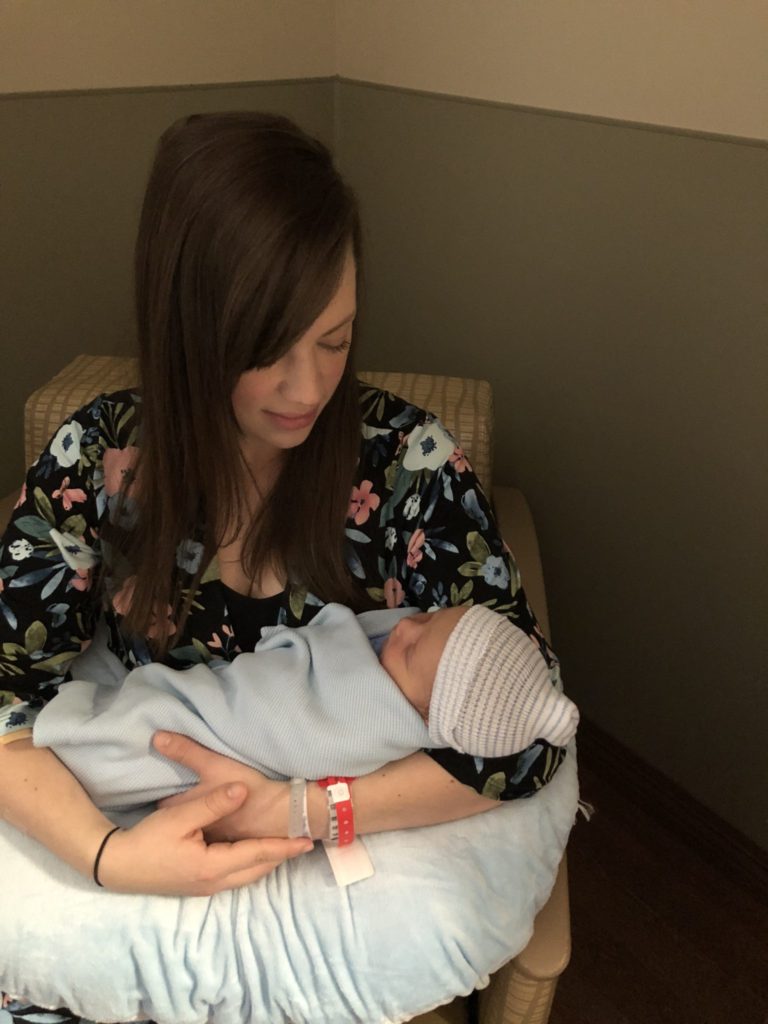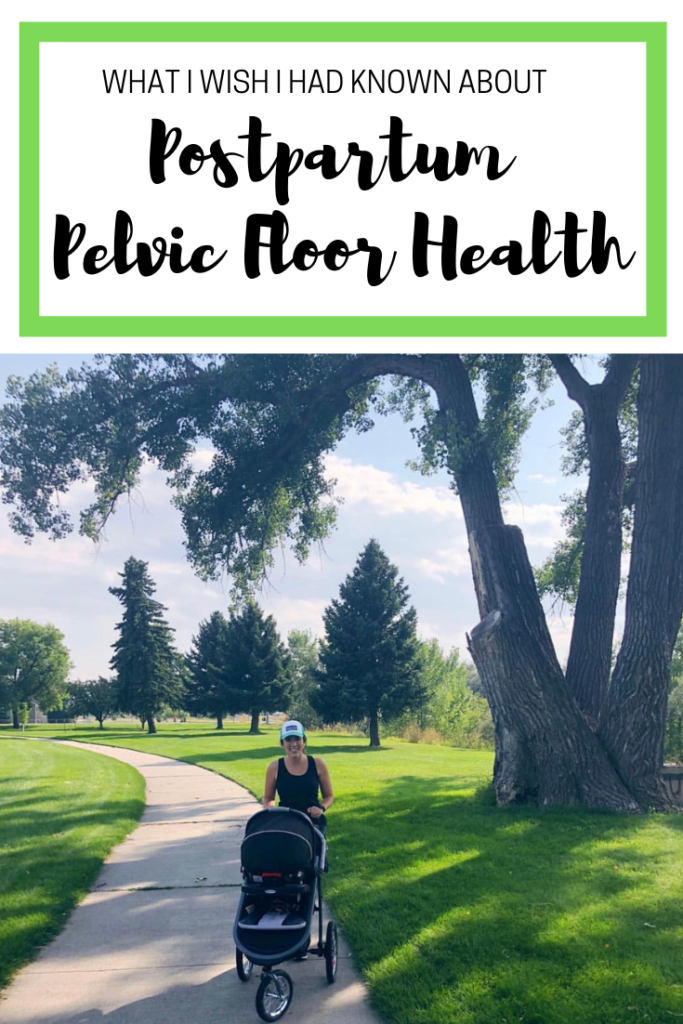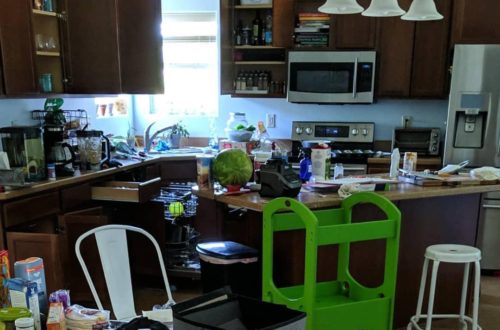
Real Talk: Postpartum Pelvic Floor Health
It is almost my baby’s first birthday, so for the next three weeks I’m going to bring back the #realtalk series and share 3 things I wish I’d known about life postpartum. These posts aren’t meant to be negative, because ultimately I am so blessed to be a mother! But they are topics that are often not talked about and are kept hush hush, despite the fact that there are many women dealing with the same issues.
Today I’m going to be talking about pelvic floor physical therapy. If that is something that makes you uncomfortable–feel free to skip this post 🙂 This is a personal and uncomfortable topic for me to talk about, but I hope that this post can raise awareness, increase preventative measures and if you are someone who is dealing with this, I hope it will help you not feel so alone!
Almost a year ago, I was induced with my first baby. I ended up being in labor for over 24 hours. I pushed for three hours and had to have a third degree episiotomy. After Henry was finally delivered and the pain medicine had worn off– I was in an extreme amount of pain internally. We stayed two nights in the hospital and the entire time I needed help getting in and out of bed and doing so made me cry each time, even with pain medicine–and I have a pretty high pain tolerance! My doctor came by to check on me and I remember that I started crying and saying “It can’t be normal to be in this much pain.” She assured me that for the length and intensity of my labor it was normal and that I would be healed before I knew it.

We went home and weeks went by and I still wasn’t feeling better. I knew that something wasn’t right. But I felt incredibly alone. None of my friends or family had ever mentioned being in this amount of pain to me! I felt so isolated, scared and embarrassed.
I went back to my OB 3 different times in the first three months postpartum–only to hear her say that “discomfort is normal” and everything looked “fine”.
At that point I was beyond frustrated. I felt stupid returning to the doctor over and over again, yet I knew that it wasn’t all in my head. I wasn’t able to sit in a chair without wanting to cry and couldn’t even go on a walk without pain!
I’ve always been an active person and I remember crying to my husband that I would never be able to run again or do the things I loved–I truly felt like something was wrong with me and like I was “damaged goods”.

Before I had a baby I had never even heard of the term “pelvic floor”, let alone pelvic floor physical therapy. It wasn’t until I was three months postpartum and still having intense pain and pressure that I first read the term after a late night desperate google search trying figure out what the heck was wrong with me!
I went to the doctor for the fourth time and mentioned my google findings. She then finally referred me to a pelvic floor physical therapist. Our town only has a few pelvic floor specialists so I had to wait months to get in. By the time I was finally able to have an evaluation I was still having daily pain and I was six months postpartum.
Once I was finally able to have my evaluation, I felt such an enormous sense of relief because she confirmed that I wasn’t in fact crazy, it wasn’t in my head and that I did need treatment.
She explained that if pelvic floor muscles, like any other muscles, aren’t strong enough, it can cause problems like incontinence or prolapse. Likewise, if the muscles are too tight it can cause pain, which is what was happening to me. They were over compensating from the trauma of childbirth and never fully relaxing. She compared it to how when you are stressed or anxious, you might tense your shoulders. Often people tense their pelvic floor and have no idea which eventually leads to inflamed tissues and nerves. I also had a slight prolapse, which I learned is estimated to occur in up to 50% of vaginal births! Um. What?!
I learned throughout my appointments just how much the pelvic floor affects daily life. Everything from exercise, walking, laughing, sitting, intimacy, running, laughing, squatting to picking up or nursing your baby uses your pelvic floor. So when it isn’t functioning properly it really puts your life on hold and can seem devastating because it affects nearly everything you do.
She also told me that many, many women suffer from pelvic floor dysfunction- whether that is pelvic pain, incontinence, pelvic organ prolapse, perineal pain or diastasis recti. Over one third of women are estimated to have some sort of pelvic floor disorder–yet most have never even heard of the term and many don’t know they have it because they’ve accepted the problem as “normal”.
If you’ve had a baby and are experiencing any sort of discomfort, remember that it might be common, but it is not normal! Get a referral from your OB and go get an evaluation from a pelvic floor physical therapist. There IS hope and you aren’t alone! It has taken awhile, but I am feeling so much better and am able to exercise-walk, run, lift, dance, laugh, sneeze, etc without any symptoms!
And babies or not–the pelvic floor naturally weakens as you get older, so taking care of it now acts as a preventative measure for the future and helps you have the best quality of life for the longest time possible.





